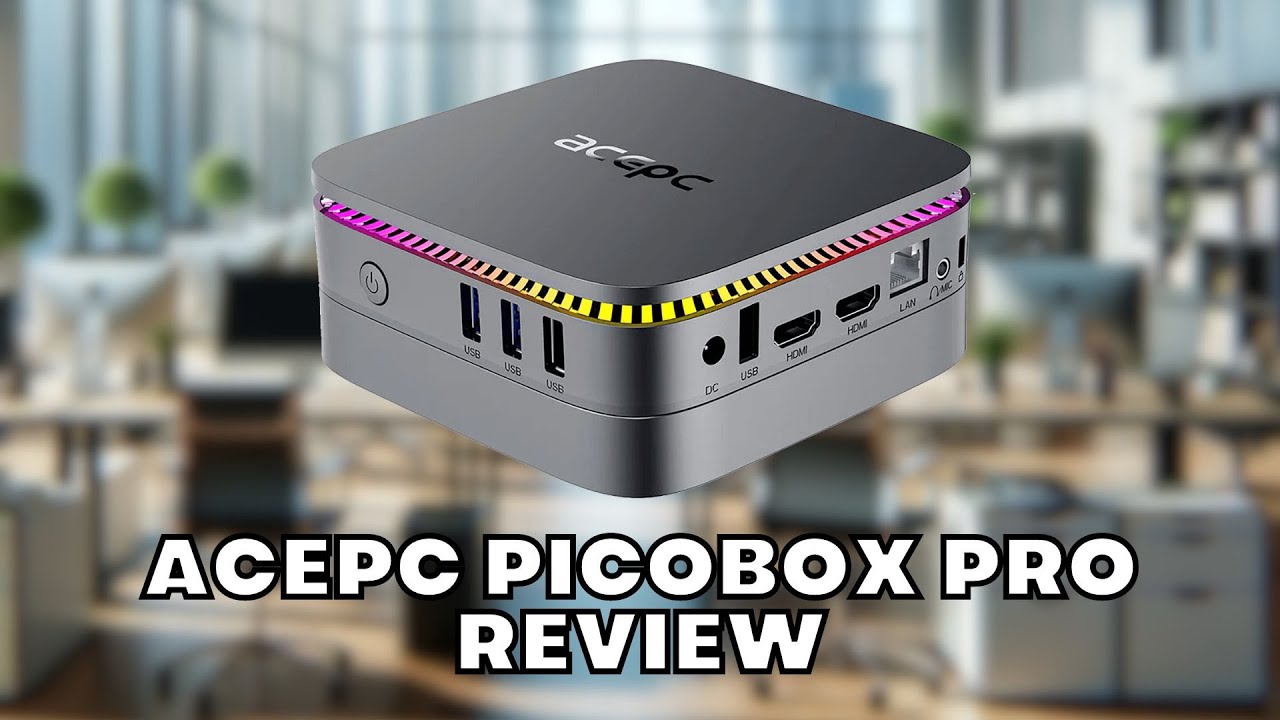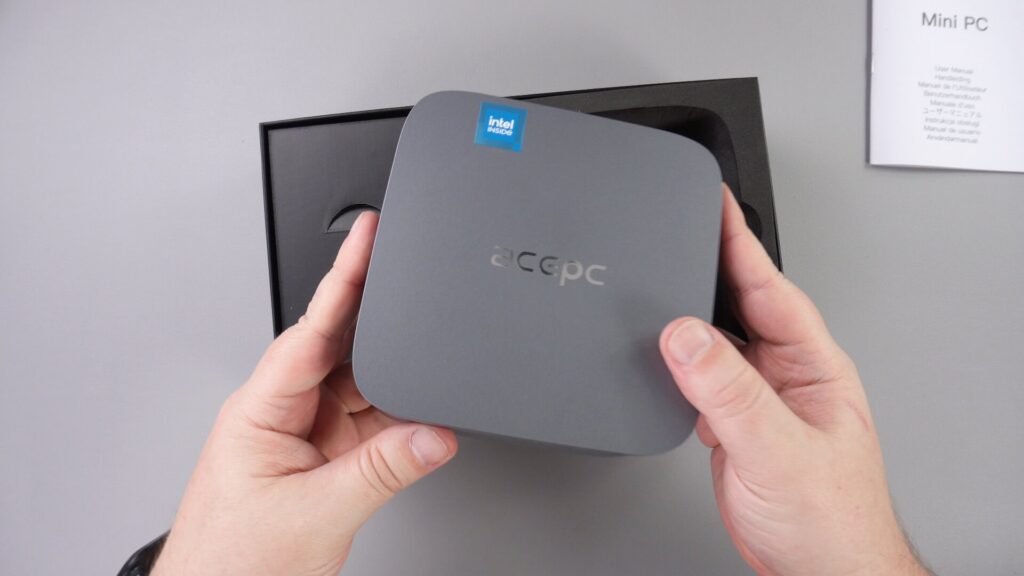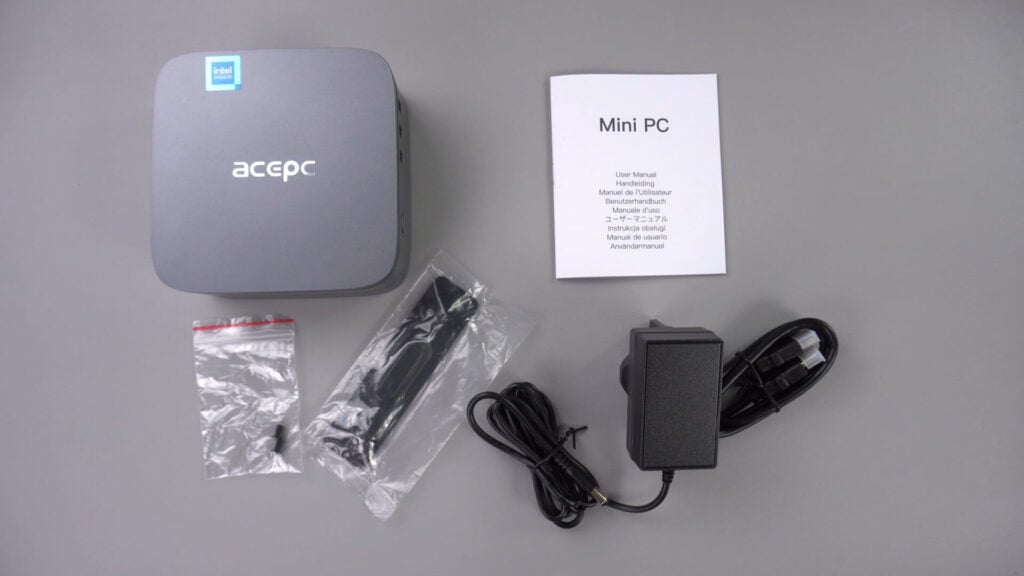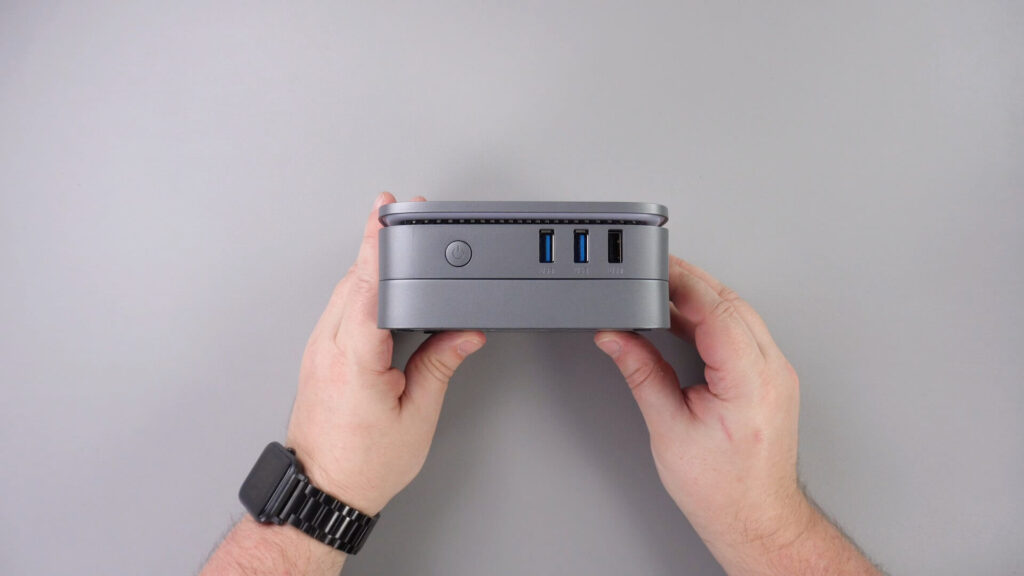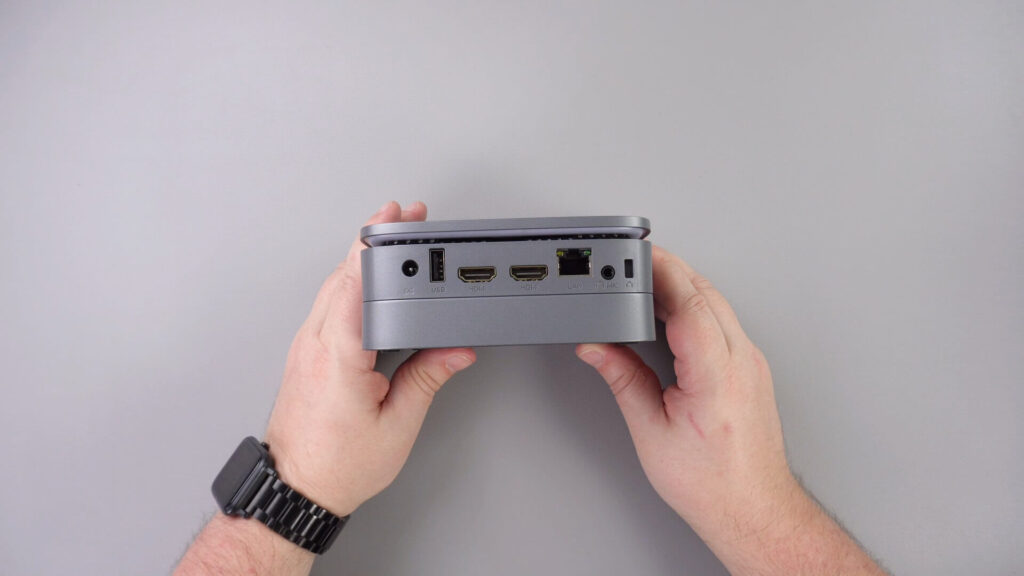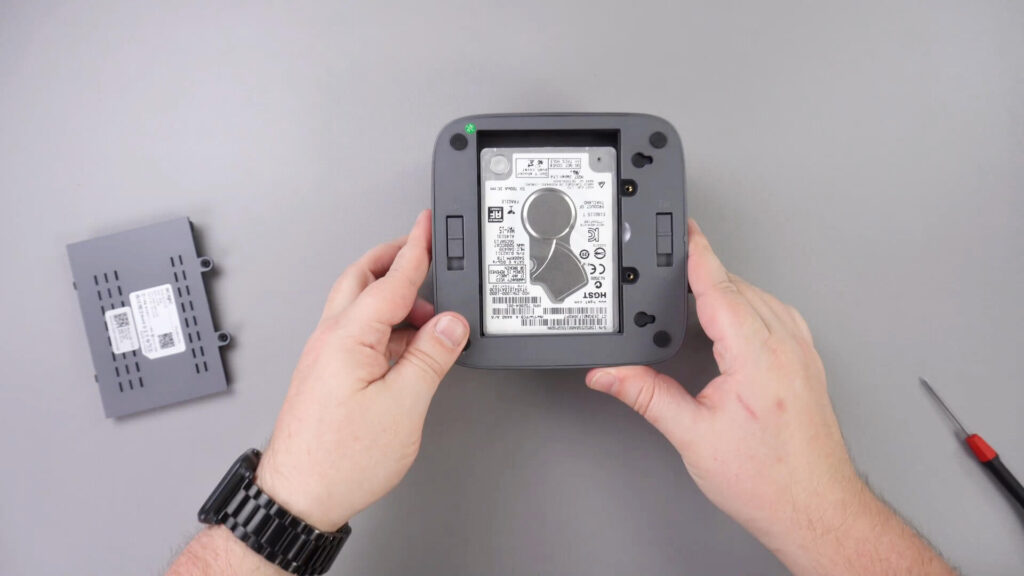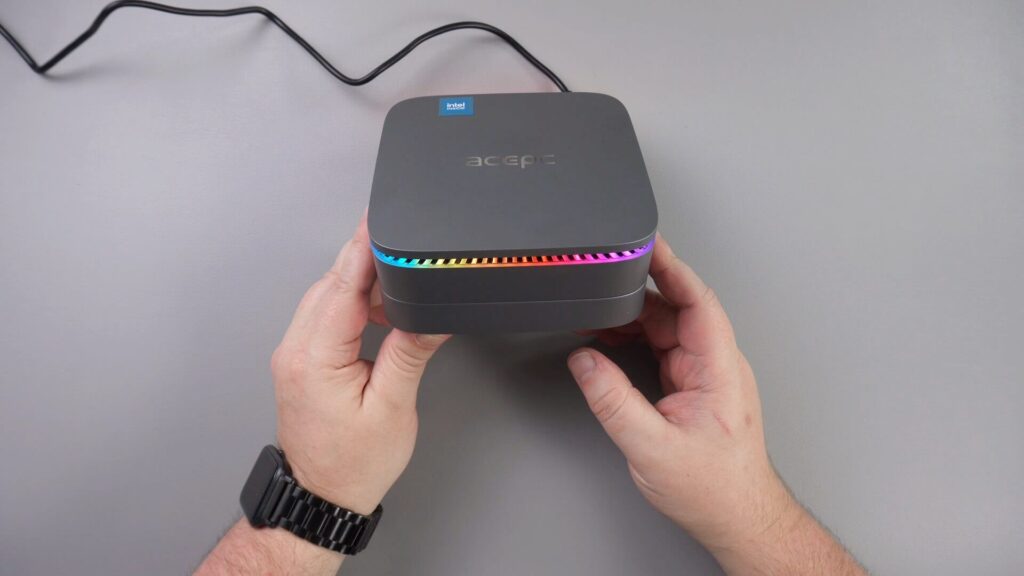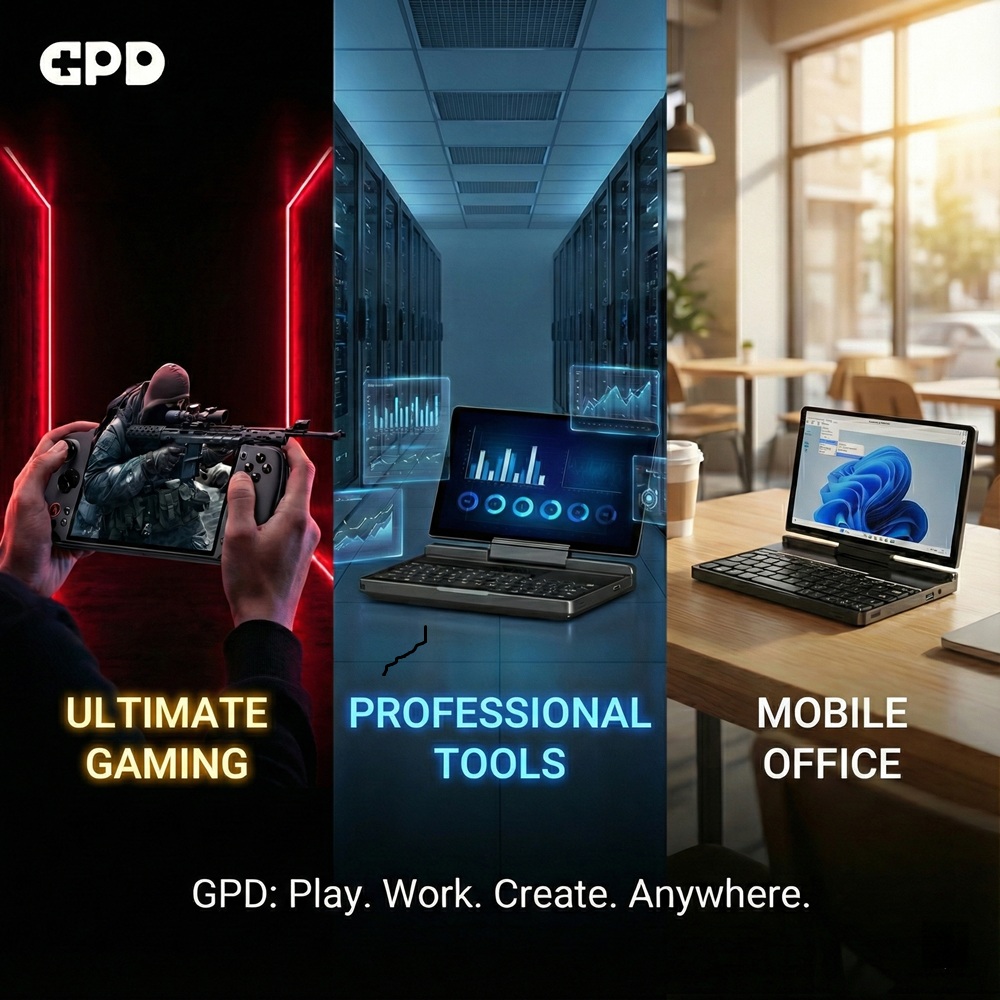ACEPC Picobox Pro
-
Design
(4.5)
-
Build Quality
(4.5)
-
Performance
(4.5)
-
Features
(4.5)
Summary
The ACEPC PicoBox Pro Mini PC stands out for its remarkable performance powered by the Intel N100 processor, . Its sleek, compact design, coupled with the ability to support 4K resolution on dual displays, makes it a top choice for both professional and personal use.
Overall
4.5User Review
( votes)Pros
- Small form factor design
- Space for 2.5″ HDD/SSD
- Dual monitor support up to 4K 60Hz
- Customisable RGB LED lighting
- Great price vs performance
- Plenty of USB ports
Cons
- Slightly lower performance than the ACEPC Picobox Mini
Following up from our recent review of the ACEPC Picobox Mini, it’s now the turn of its bigger brother, the ACEPC Picbox Pro.
ACEPC Picobox Pro review video
Unboxing the ACEPC Picobox Pro
First in the box we have a user manual which is in multiple languages including English, French and German. Next we have the ACEPC Picobox Pro mini PC itself. We will take a closer look at it in a moment.
Inside the cardboard box is a power supply. We will include the correct adapter for your country. There is a HDMI cable for connecting to your TV or monitor And we finish with a VESA mount and screws for attaching it.
ACEPC Picobox Pro Overview
The ACEPC Picobox Pro measures around 5.04 x 5.04 x 2.03 inches and weighs around 386g. The right side has the power button, two USB 3 and one USB 2 port for connecting peripherals to.
The back of this mini PC for home office from left to right has the power port, a USB 2 port, two HDMI ports for up to 4K dual display, a gigabit ethernet port, and 3.5mm headphone jack.
The base contains a space for a 2.5” SATA hard drive or SSD. It is very easy to fit, simply unscrew and lift the lid. You can then insert your drive, replace the lid and screws and you are good to go. There are two sliding locks which when unlocked, you can separate the base from the main mini PC which is handy if travelling for example.
When powered on the LED lighting shows around the top area of the Picobox Pro mini PC. The lighting can be configured in the software and allows for different patterns and brightness, as well as switching off if it is distracting for you.
ACEPC Picobox Pro Technical Specifications
| ACEPC PICOBOX MINI | ACEPC PICOBOX PRO | |
| CPU | Intel N100 4 cores and 4 threads running up to 3.4GHz at 6W TDP. | Intel N100 4 cores and 4 threads running up to 3.4GHz at 6W TDP. |
| GPU | Intel UHD Graphics @ 750Mhz | Intel UHD Graphics @ 750Mhz |
| RAM | 8GB/16GB LDPPR5 | 16GB RAM DDR4 SO-DIMM |
| STORAGE | 512GB m.2 2280 SSD (Max 1TB) | 512GB m.2 2280 SSD (Max 2TB) Space for 2.5 HDD/SSD |
| WIFI | 5.0 | 6 |
| BLUETOOTH | 4.2 | 5.2 |
| ETHERNET | 2x Gigabit Ethernet | 1x Gigabit Ethernet |
While running the upcoming benchmarks we tested the power usage, fan noise and temperatures of this mini PC with Intel processor. We got very low 23.7W power usage, 41 decibels peak noise and 36 °C peak temperature.
ACEPC Picobox Pro Benchmarks
As always we run a few benchmarks so that we can compare the performance with other mini PC for business. We will be comparing with the Picobox Mini which shares the same processor but different RAM configuration.
PCMark
We start our benchmarks with PCMARK which tests real life day to day tasks from web browsing and video conferencing, through to working with large documents, image editing and more.
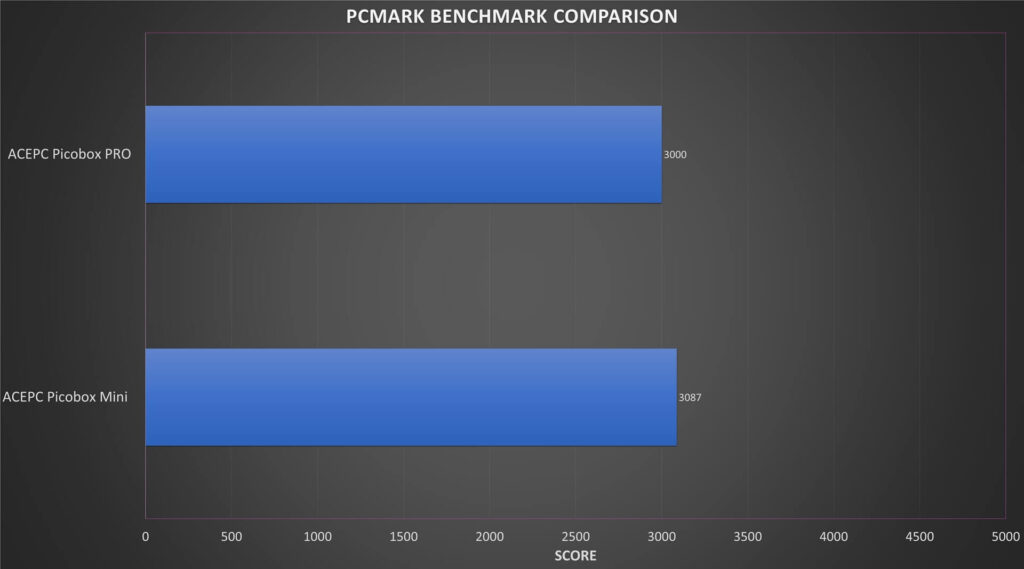
We can see that the Picobox Mini is slightly ahead by just 87 points. Putting these Intel compact computers side by side you would barely notice any difference.
Cinebench
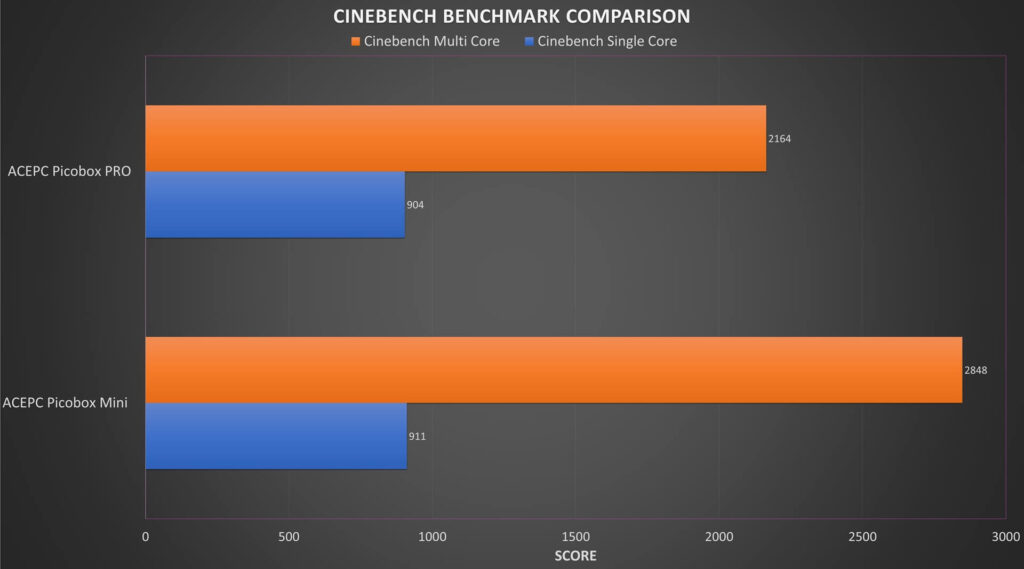
Cinebench measures the performance of the single and multi-cores on the processor. We again see the Picobox Mini slightly outperform the ACEPC Picobox Pro with 911 versus 904. We do see a larger performance difference on multi-core with 2164 versus 2848. The RAM type definitely helps with a performance increase here.
3DMark
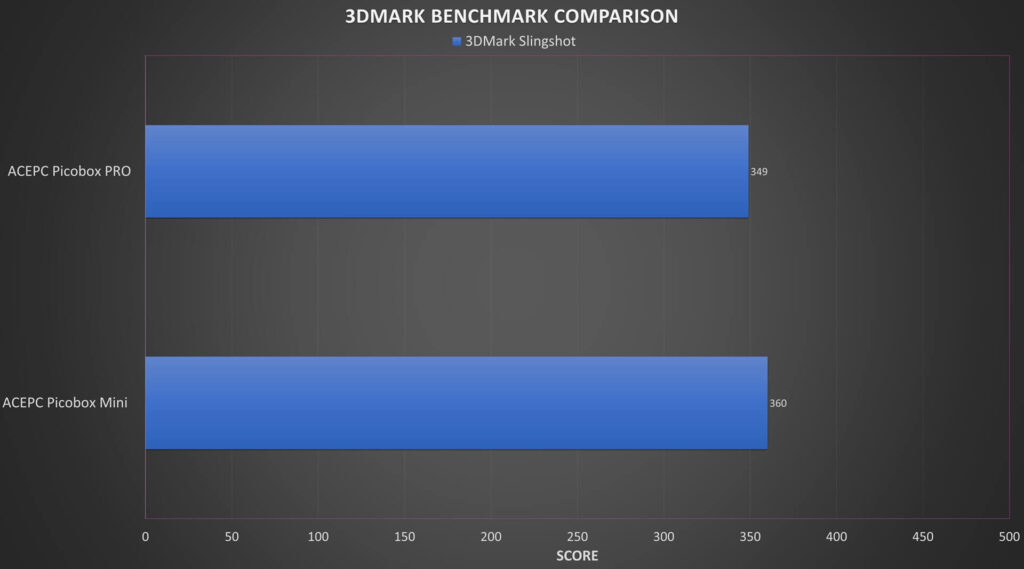
3DMark tests the CPU and GPU performance. We see that the Picobox Mini is slightly ahead in the scores with 360 versus 349 on the ACEPC Picobox Pro. Again you would not notice much difference when compared side by side.
4K Youtube Playback
Like the ACEPC Picobox Mini, the Pro can handle 4K video playback with no issues. We are playing a Youtube 4K test video and there are no frame drops at all. You can be assured that any 4K media will display exactly how it should.
Light Gaming
While the ACEPC Picobox Pro is not a gaming mini PC, like the Mini it is OK for very light gaming. We are again testing the awesome Double Dragon running at 4K and it had no issues running at full 60 frames per second. We tried something more challenging with Oceanhorn 2 with the settings at 720P on Low graphics. We are getting a solid 60 frames here as well, but keep in mind the lower resolution and graphics levels.
Emulation performance
For emulation we already know from the Picobox Mini that these processors are actually quite good for emulation. You can run all the 8 and 16 bit systems just fine. You can even run the PlayStation 1 emulator DuckStation and increase the rendering resolution up to 1080P and higher depending on the game. We also saw good performance on the Dolphin emulator with mostly full frames per second.

For the PSP emulator PPSSPP we also saw good performance, God Of War will run full speed on 1x rendering resolution, and depending on the game you can increase it to improve visual quality. And for PS2 emulation, it is unfortunately not powerful enough to run most games at full speed. Nevertheless, it is very impressive having these systems being able to run on these Mini Intel desktops.
Final Thoughts
We will sum up the review with our final thoughts. As with the Mini, the ACEPC Picobox Pro is not great for gaming. While you can play some light games, you will struggle with anything higher. A good alternative is game streaming services such as Xbox and Luna services which work great.
For emulation, the Pro is very capable. You get decent performance on DuckStation, Dolphin and PPSSPP emulators, and all the earlier classic console and computer systems

And for media playback this Mini PC for streaming is also very good. We saw perfect 4K playback with no lags. The fan is very quiet and definitely not something you can hear even with the audio on low.
And it is great for home or office work, from everything from your child’s homework up to working with large office documents, even some light image editing. Having the option to install a 2.5” drive provides more storage for these tasks.
Which model should you buy, the Mini or Pro? The ACEPC Picobox Pro model is a little cheaper, so if you want to save some money then go for that. You do have the advantage of having space for a 2.5” drive which is great for extra storage. You do lose out on the 3rd HDMI port and second ethernet port, but get an extra USB 2 port.
With the Mini you get a bit more connectivity which is perfect for triple monitor setup, using it as a media server etc. The Mini was also faster in our tests, especially for multi-core performance. It does depend on your requirements with this, both have their advantages and disadvantages.
You can learn more and buy the ACEPC Picobox Pro here.
Thanks for reading our ACPC Picobox Pro review! Let us know in the comments which model you would buy.







